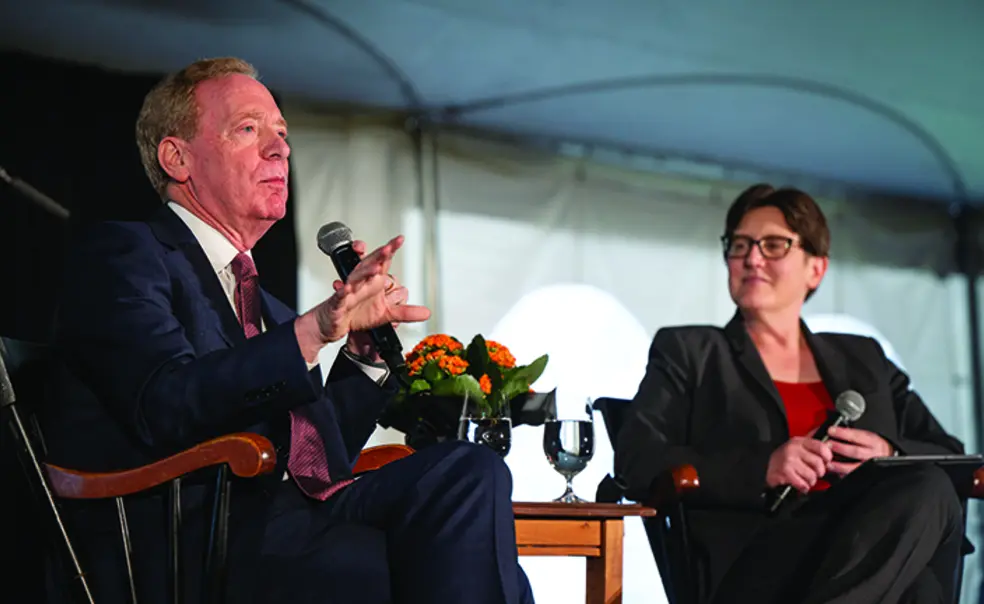Could New Jersey Be the Place Where AI Blossoms?
Speakers at the inaugural N.J. AI Summit see a bright future for artificial intelligence in Princeton and its backyard
At the New Jersey AI Summit on April 11, academics, business leaders, scientists, engineers, and government officials gathered on Princeton’s campus to conceptualize the future of artificial intelligence in the state and its potential to impact everything from education to sustainable energy to health care.
Brad Smith ’81, vice chair and president of Microsoft Corporation and a University trustee, delivered the keynote address. He was one of several speakers to touch on the legacy of innovation in the state, starting with Thomas Edison, and existing resources such as top universities and businesses that uniquely position New Jersey to become a hub of AI innovation.
Smith compared AI with the printing press, which he said created a new economy and entire fields of industry, in addition to radically transforming the public and enabling the spread of democracy. And though the printing press was not invented in the Netherlands, it blossomed there, and Smith believes that’s what “New Jersey can be for AI” — not the birthplace, but the central hub.
While Smith cautioned that guardrails are extremely important, he said AI will result in “a new opportunity for us to rediscover and reflect upon what all of us have in common — to think about what it means to be human, to consider all of our common values.”
Throughout the day, presenters detailed the current use of AI in the state as well as prospective paths forward to better society as a whole.
At an education and workforce development panel, Jennifer Jennings ’00, a Princeton professor of sociology and public affairs as well as a former teacher in Trenton, suggested AI can assist K-12 teachers — noting “we are seeing teacher supply issues in New Jersey” — by supplementing classroom instruction, targeting specific areas where students need support.
“I imagine a world in which we create the space for teachers to really do what they do best, which is connect, inspire, and support kids in the state,” Jennings said.
Steven Cowley *85, director of the Princeton Plasma Physics Laboratory and a professor of astrophysical sciences, said he hopes AI can help identify optimal configurations for fusion devices, of which there are 10 billion possible configurations.
Greg Meyers, chief digital and technology officer at Bristol Myers Squibb, said the company is using AI to generate medical documents, such as informed consent forms, and also partnered with Fitbit to incorporate an atrial fibrillation detector into fitness trackers, “a relatively simple tool” that he said has already been triggered more than 170,000 times.
The event, President Christopher Eisgruber ’83 said, was exactly what he and Gov. Phil Murphy envisioned when they announced the creation of an AI hub in December. “The conversations we have today and the ideas that you share will help shape the plans for the AI hub,” Eisgruber told participants, “and the relationships that we build today will create the foundation for collaboration in the months and years to come.”
In his remarks, Murphy announced the next cohort of the state’s Innovation Fellows program — which provides grants to budding entrepreneurs — will exclusively focus on AI-powered innovations.












No responses yet